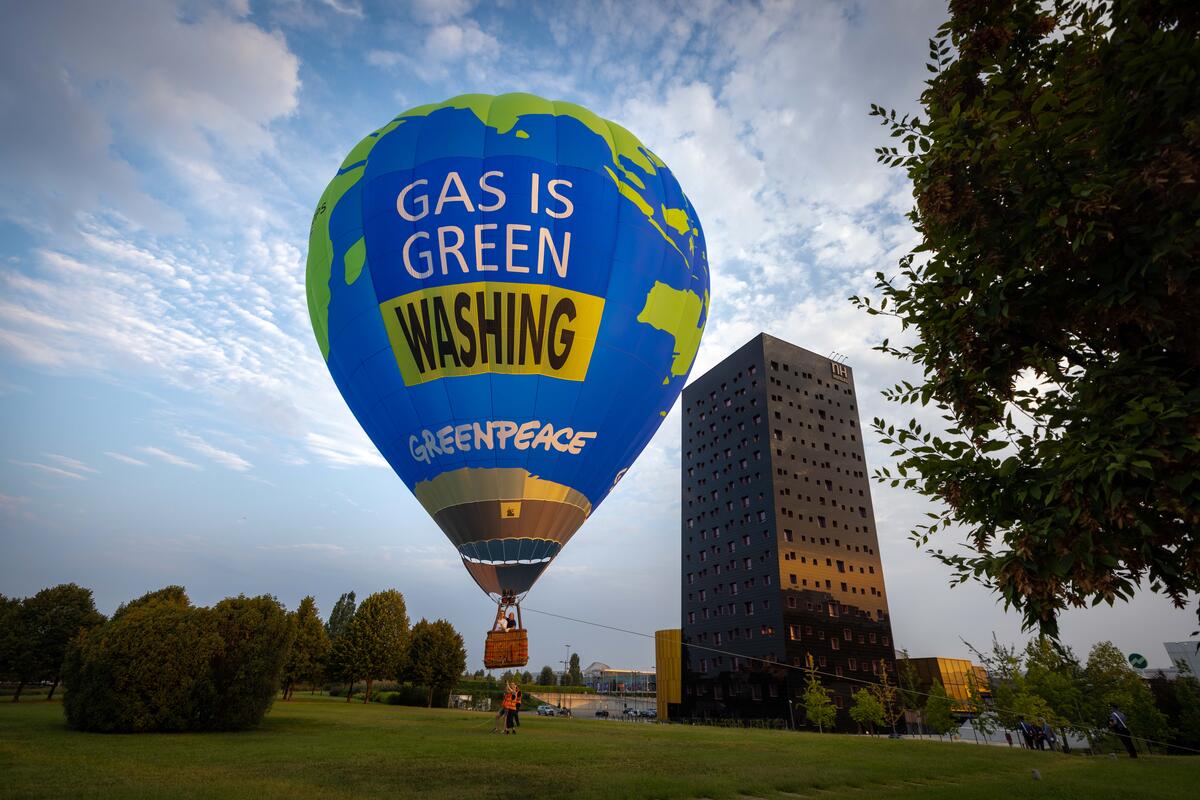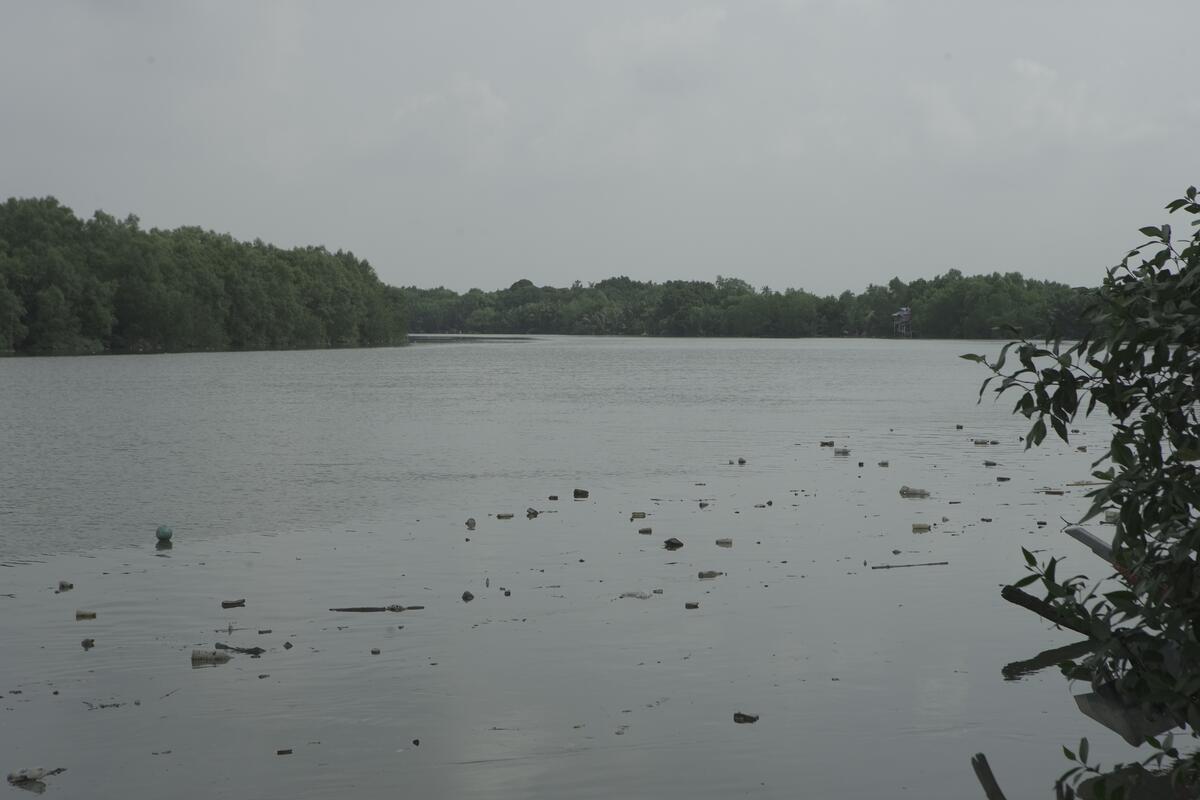CSOs call upon ASEAN leaders to take a strong stance in the ongoing negotiation to develop an international legally binding instrument to address plastic pollution, including in the marine environment.
Between 23-29 April 2024, members of the Association of Southeast Asian Nations (ASEAN) will meet with other countries in Ottawa, Canada, for the fourth session of the Intergovernmental Negotiating Committee (INC-4) meeting to develop text for an international legally binding instrument known as the Global Plastics Treaty to address plastic pollution, including in the marine environment, through a comprehensive approach that addresses the full life cycle of plastics. The prospective instrument is a once-in-a-lifetime opportunity to solve the plastic crisis.
Plastic pollution has multiplied hand-in-hand with growth in plastic production, with single-use plastics contributing up to 50% of total production. While recycling rates are projected to increase from 9% in 2019 to 17% by 2060, 70% of plastic waste – which is projected to have tripled by then – would still end up incinerated or in landfills.
The plastic industry is also the fastest-growing source of industrial greenhouse gases in the world, with the plastic life cycle being projected to account for up to 19% of global greenhouse emissions by 2040. The current linear economic model of extraction-production-disposal and uncontrolled plastic production is incompatible with staying below the 1.5-degree Celsius threshold as well as within safe and just planetary boundaries.
As a region, Southeast Asia is severely impacted by pollution caused at various stages in the plastic life cycle. Several reports and studies have shown how petrochemical industries, plastic manufacturing, plastic consumption and usage, plastics recycling, incineration and disposal, are sources of harm to the environment and health of people in Southeast Asia.
Plastic pollution occurs in many forms from macroplastics in the Mekong River and the seas, to microplastics and additives or unintentional releases from plastic waste management and recycling such as persistent organic pollutants (POPs).
Unsanitary landfills, and illegal dumpsites with hazardous electronic waste impact people in Malaysia. Discarded or lost fishing gears made from plastics affect marine ecosystems in Cambodia, Myanmar, and Vietnam. Microplastics and POPs have already both been found in the bodies of people in Indonesia and Thailand. All these pose an imminent and serious threat to public health in our region.
Southeast Asia is also impacted by plastic waste imported from other regions, with developed nations such as the United States, Japan, China, and European nations included among the major exporters.
Plastic waste exported by developed nations is not only shipped as plastic waste, but also mixed in waste paper bales as non-recyclable flexible plastic scraps, snack packs and dirty plastic cups and bottles, or multilayered plastic pouches, even soiled diapers. These “impurities” – which likely contain a significant amount of plastics – in paper waste shipped from Europe, can make up to 10% of the total volume.
Large quantities of plastics could also be hidden in paper imports, as is the case in the illegal export of 130 tons of municipal waste – falsely declared as paper – from Australia to Thailand in 2022. There have also been trends in exporting plastic waste as fuel or Refuse Derived Fuel (RDF) from developed countries, undermining the effort of In Southeast Asian nations to resist waste colonialism.
Tracking of trade in plastic waste in various forms can be notoriously difficult, especially along porous borders in the region, such as that between Myanmar and Thailand.
It is essential that Southeast Asian leaders challenge the false narratives that blame our region for contributing to ocean plastic pollution while disregarding the impact of their plastic waste exports to us, and the fact that the biggest plastic polluters are large FMCG corporations from the Global North.
Our region has a recent collective history of using natural materials, and is a fertile ground for environmentally sound, economically beneficial, and citizen-led solutions to the plastic crisis. These include zero waste solutions that are already up and running in Hoi An, Vietnam, reuse pilots in Manila, Philippines, reuse systems in Jakarta, Indonesia, and water refill infrastructures in Bangkok, Thailand, the latter with the support of the Bangkok Metropolitan Authority.
Aside from local governments, national governments in our region have shown ambitions to lead the way in implementing policies to curb plastic pollution, and have individually made strong statements in past INCs. ASEAN has also voiced its collective ambition to combat plastic pollution as a region.
Evidently, our region has strong solutions and strong ambitions that may not only solve the plastic crisis here but elsewhere in the world. It is time for the ASEAN countries to collectively voice their ambition to end plastic pollution at INC-4. The African region and the Small Islands Developing States have already done so in past INCs to remarkable impact.
We, the undersigned civil society organisations, working to end plastic pollution in Southeast Asia and beyond, call upon its member-states to cooperate and negotiate a global plastics treaty that meets the following key goals:
- To address the full life cycle of plastic, prioritising reduction in plastic production, starting with avoidable and hazardous plastics based on an essential use criteria approach.
- To end the transboundary movement of plastic waste and waste colonialism.
- To eliminate toxins across the life cycle of plastics by chemical (including polymer) groups, including chemical additives, both intentionally and non-intentionally added substances (NIAS), and microplastics.
- To increase transparency, traceability, labelling and harmonised disclosure of chemicals in plastics as well as the reporting of pollution through the pollutant release and transfer register.
- To scale up reuse and refill infrastructures that meet global minimum design criteria including standardised toxic-free packaging, safe collection and redistribution mechanisms and binding reuse targets.
- To reject technologies that do not address the root cause of plastic pollution, and instead worsen impacts on human health and the environment, including chemical recycling, incineration, waste-to-energy, refuse-derived-fuel (RDF), and similar technologies.
- To prevent regrettable substitutes such as bio-based, biodegradable and compostable plastics which have been shown to contain toxic chemicals and only divert attention away from the reduction of plastic production.
- To mandate polluter and producer accountability through global standards for Extended Producer Responsibility (EPR) and a mechanism for the Polluter Pays Principle.
- To give a central role to human rights and social justice for all people impacted by plastic pollution, including workers across the plastic life cycle, especially waste-pickers, indigenous peoples & Global South communities, through Just Transition.
- To strengthen research and monitoring of the impacts of plastic on human health and the environment, with an eye towards restoration, compensation, and remediation.
Signatories
- EcoWaste Coalition
- IPEN Southeast Asia and East Asia
- BAN Toxics
- ECOTON
- Wahana Lingkungan Hidup Indonesia (WALHI)
- Basel Action Network
- Consumers’ Association of Penang
- Sahabat Alam Malaysia (Friends of the Earth Malaysia)
- Zero Waste Malaysia
- GAIA (Global Alliance for Incinerator Alternatives)
- Green Party of the Philippines (GPP KALIKASAN MUNA)
- Bayanihan Para sa Kalikasan Movement, Inc.
- Zero Waste Baguio Inc.
- Health Care Without Harm SE Asia
- Ecological Alert and Recovery – Thailand (EARTH)
- Interfacing Development Interventions for Sustainability (IDIS)
- Persatuan Tindakan Alam Sekitar Kuala Langat
- Aliran
- Myanmar Ocean Project
- Trash Hero Thailand
- RSM Việt Nam
- Green Vientiane
- Pertubuhan Pelindung Khazanah Alam
- Environmental Investigation Agency
- Women Engage for a Common Future
- Nexus3 Foundation
- Te IPukarea Society
- Zero Waste Sabah
- Vietnam Zero Waste Alliance
- Health and Environment Justice Support (HEJSupport)
- OSHE Foundation
- Caribbean Poison Information Network
- Thant Myanmar
- Greenwomen Analytical Environmental Agency
- Center for Public Health and Environmental Development (CEPHED)
- Environment and Social Development Organization – ESDO
- groundWork, Friends of the Earth South Africa
- NGO – Foundation to support civil initiatives
- Taller Ecologista
- Hamraah Foundation
- Action des Femmes pour une Planète Bio (AFEPB)
- Center for Renewable Energy and Sustainable Technology (CREST) Philippines
- Free Tree Society
- Save Sierra Madre Network Alliance Inc.
- Aotearoa Plastic Pollution Alliance
- Environmental Justice Foundation (EJF)
- Center to Combat Corruption and Cronyism (C4 Center)
- Greenpeace Southeast Asia
- National Fisheries Solidarity Movement
- Association For Promotion Sustainable Development
- Centre for Environmental Justice
- Chemical Safety Agency
- DONRE Hoi An
- All India Kabadi Mazdoor Mahasangh (AIKMM)
- Greeners Action
- Dietplastik Indonesia
- Blue Dalian
- Sustainable Menstruation Kerala Collective
- Gabungan Darurat Iklim Malaysia
- Alliance of River Three
- BioThai Foundation
- Community Action Against Plastic Waste (CAPws)
- Citizen consumer and civic Action Group (CAG)
- Parti Sosialis Malaysia
- Korea Zero Waste Movement Network
- Jaringan Rawang Tolak Insinerator
- CLEAN UP NEPAL
- Eco Circular India Foundation
- Trash Hero Indonesia
- Wonjin Institute for Occupational and Environmental Health
- Just Transition Alliance
- Asia Monitor Resource Centre
- Nam Phong River Restoration and Conservation Network
- Zero Waste Himalaya
- Youth Health Hub Indonesia
- GreenativeX
- Center for International Environmental Law (CIEL)
- Stree Mukti Sanghatana
- Pro Public
- Persatuan Pendidikan dan Kebajikan Jaringan Nelayan Pantai Malaysia (JARING) Malaysian Coastal Fishermen’s Network Education and Welfare Association
- AEEFG
- The network for carcinogen-free Society S.Korea
- Pesticiede Action Network (PANA) Africa
- OSEAN (Our Sea of East Asia Network)
- Health Environment and Climate Action Foundation (HECAF360)
- WEMASA TANZANIA
- Faith and Hope Association
- Human Environmental Association for Development (HEAD)
- TOXISPHERA ENVIRONMENTAL HEALTH ASSOCIATION
- Developers Foundation Inc.
- Trash Hero Malaysia
- Gita Pertiwi
- Nol sampah surabaya (aliansi zero waste Indonesia)
- Samyukta Safai Jagaran
- World Cleanup Day North Sumatera
- ENLAWTHAI Foundation (EnLAW)
- Malaysian Nature Society Selangor Branch Green Living Special Interest Group
- ENVIRONMENTAL PROTECTION SOCIETY MALAYSIA (EPSM)
- Yaksa Pelestari Bumi Berkelanjutan
- Arnika – Toxics and Waste Programme
- Yaksa Pelestari Bumi Berkelanjutan
- World Clean up Day Sumatera Selatan

Ask our leaders to support a strong global plastic treaty that addresses the whole life cycle of plastic.
Add Your Voice


